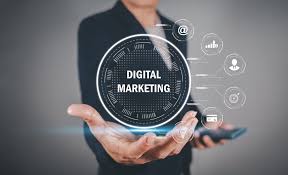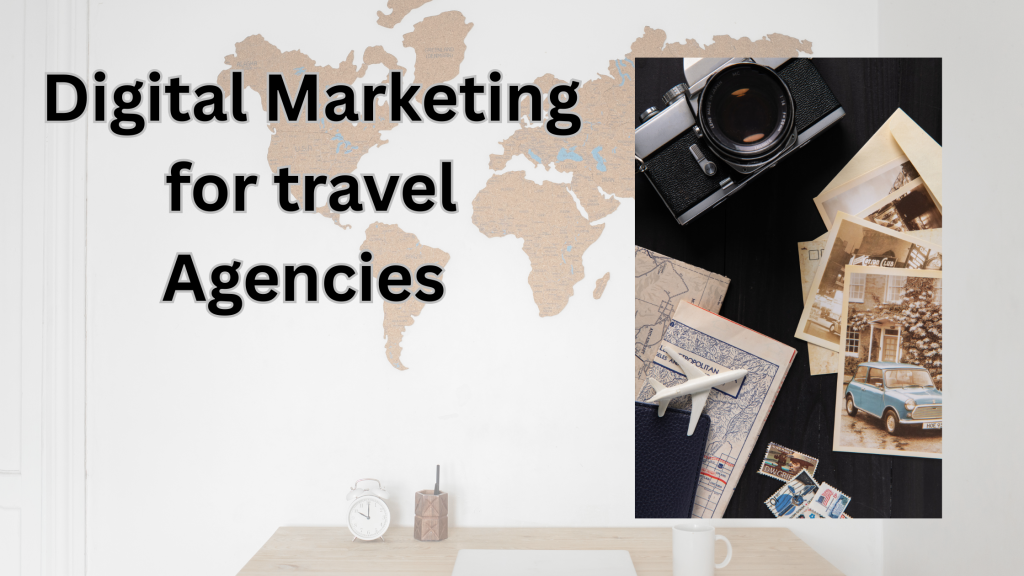In today’s fast-paced, digitally driven world,Travel Agencies and Their Services is no longer dependent on traditional advertising methods like brochures, billboards, or newspaper ads. Instead, digital marketing for travel agencies has emerged as the cornerstone of growth, customer engagement, and brand visibility. From small boutique travel planners to large-scale agencies, embracing digital platforms isn’t just an option—it’s a necessity.
Why Digital Marketing is Crucial for Travel Agencies
Travel is one of the most experience-driven industries, and consumers now begin their journey online—through search engines, social media, or travel blogs. According to a recent study, over 70% of travelers plan their vacations online, and 80% read reviews before making a booking. That’s where digital marketing for travel agencies plays a transformative role. It helps agencies:
• Reach a mass market and target lager group of audience
• Build trust through reviews and feedback
• Showcase their services in a visually appealing and informative way
• Drive direct bookings without relying solely on third-party platforms
Core Services of Travel Agencies That Benefit from Digital Marketing
Travel agencies today offer more than just ticketing. Their comprehensive services can include:
• Domestic and international tour packages
• Customized itineraries
• Hotel bookings
• Visa assistance
• Travel insurance
• Honeymoon & luxury travel planning
• Adventure and group travel packages
Each of these services can be targeted specifically through well-designed digital marketing for travel agencies, bringing the right offer to the right audience at the right time.
Key Digital Marketing Strategies for Travel Agencies

1. Search Engine Optimization (SEO)
Having a website isn’t enough—it needs to be discoverable. SEO helps travel agencies rank higher on Google for relevant terms like “best Europe tour packages” or “budget-friendly honeymoon destinations.” Including localized keywords (e.g., “Rajasthan tour planner”) can attract nearby clients.
Use blog posts, landing pages, and destination guides to optimize for SEO. Don’t forget to include your primary keyword—digital marketing for travel agencies—across pages for better visibility.
2. Social Media Marketing
Travel is highly visual, making platforms like Instagram, Facebook, and YouTube ideal for showcasing destinations, customer testimonials, and behind-the-scenes travel planning.
• Instagram is great for reels, stories, and travel inspiration
• Facebook helps build community groups and drive local bookings
• YouTube is perfect for destination guides and travel vlogs
Social media also allows direct interaction with travelers, building trust and engagement.
3. Email Marketing
Sending regular travel newsletters, deals, and holiday offers keeps your brand top-of-mind. Segment your audience based on interests—family trips, solo travelers, adventure seekers—and send personalized content.
Email remains one of the most cost-effective tools in digital marketing for travel agencies and their services
4. Pay-Per-Click Advertising (PPC)
Running Google Ads or social media campaigns helps you reach people actively searching for trips. For instance, bidding on keywords like “Thailand honeymoon package” ensures your agency shows up when it matters most.
Combine PPC with retargeting ads to follow up with users who visited your website but didn’t book.
5. Online Reviews and Reputation Management
Platforms like Google, TripAdvisor, and Facebook are where travelers share and read reviews. A single 5-star review can lead to multiple bookings. Encourage happy customers to leave feedback and promptly respond to any concerns.
A strong online reputation is a vital pillar of digital marketing for Travel Agencies and Their Services
6. Influencer Marketing
Partnering with travel influencers can help your agency tap into new markets. Influencers provide authentic content and have dedicated follower bases. A shoutout or a travel vlog featuring your service can bring significant attention. Collaborating with an influencer who understands your goal is a win-win situation for both.
The Role of Content Marketing
Content is at the heart of every digital campaign. From blogs about “10 hidden gems in Europe” to guides on “How to apply for a Schengen visa,” high-quality, engaging content establishes your authority.
Content should be educational, inspirational, and optimized with keywords. Using your focus phrase—digital marketing for travel agencies—strategically in blogs improves search visibility and credibility.
Analytics and Performance Tracking
One of the biggest advantages of digital marketing for Travel Agencies and Their Services is measurable results. Tools like Google Analytics, Meta Business Suite, and SEMrush allow you to track clicks, conversions, bounce rates, and more.
Understanding what works (and what doesn’t) helps you refine strategies and boost ROI over time.
Final Thoughts
Travel is about creating memorable experiences—and marketing those experiences requires a modern, digital-first approach. Whether you’re a solo travel consultant or a full-fledged agency, implementing smart digital marketing for travel agencies can drive leads, build trust, and grow your brand beyond borders.
The world is online—and so are your customers. It’s time to meet them where they are, with a strategy that’s as dynamic and exciting as the journeys you create.
